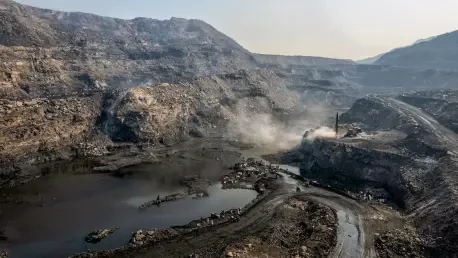
In the ever-evolving landscape of energy investments, few names carry as much weight as Christopher Hailstone. With a storied career in energy management, renewable energy, and electricity delivery, Christopher is our go-to expert on utilities, offering unparalleled insights into grid reliability

In a rapidly evolving global energy landscape, Iraq is taking bold steps to secure its position as a key player in the international oil market by forging a strategic partnership with ExxonMobil to establish crude oil storage facilities near major demand centers. This initiative, driven by the

In an era where energy demands are skyrocketing due to the rapid expansion of data centers and artificial intelligence infrastructure, the nuclear power industry stands at a critical juncture, seeking innovative ways to enhance efficiency while adhering to stringent safety standards. A startup

In an era where climate change looms as one of humanity's greatest challenges, the transportation sector stands at a critical crossroads, responsible for a substantial share of global greenhouse gas emissions, and as fossil fuels continue to dominate how goods and people move across roads, skies,

In the heart of Santander, Colombia, Forge Resources Corp., a Canadian junior exploration company listed on CSE (FRG), OTCQB (FRGGF), and FSE (5YZ), is carving a promising path in the coal mining sector with its La Estrella Coal Project. Through its 80%-owned subsidiary, Aion Mining Corp., the

In a world where global trade is already under strain, imagine a critical industry like petrochemicals facing an additional 15% decline in trade volume due to policy barriers. This alarming scenario unfolded as a central concern at the Asia Pacific Petroleum Conference (APPEC) in Singapore, where